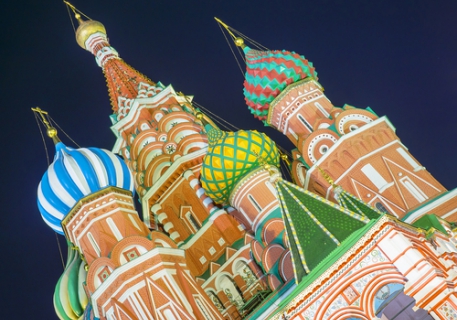How QIWI Feeds Russia’s Cash-Hungry Soul

Russia is a cash society. Only 20 to 25 percent of Russian adults have bank accounts. Just 15 percent had credit cards in 2011, and 90 percent of those cards are used only for withdrawing cash. For big purchases, bringing along a suitcase of rubles is still the norm — although private buyers prefer dollars.
In Russian shops, “Customers pay for 90 percent of their purchases in cash,” said Maksim Faldin, co-founder of Russian e-commerce marketplace Wikimart, who was quoted in the business newspaper Kommersant when PalPal entered the Russian market. “It is unlikely that Russian shops would be interested in this right now.”
That puts Qiwi in the center of the Russian payments world. The Moscow-based company operates a network of kiosks that Russians can use to pay bills and fines, as well as buy credits for online services such as Skype. In effect, Qiwi’s kiosks turn cash into digital transactions that business systems can accept. Until the cash is fed into the machine, it’s as anonymous as ever.
Qiwi’s success — roughly 170,000 kiosks in Russia, more than 40,000 vendors that accept cash payments through the kiosks, 65 million customers who pay more than 39 billion rubles (about $1.3 billion) each month — forms a window into a Russian society that’s not just worried about cyberthieves stealing credit-card numbers on the Web, but tends to avoid any payments that stray far from currency you can hold in your hand.
That fixation on cash comes in part from a string of financial crises that have wiped out banks since the end of the Soviet era, making Russians leery of both the banks themselves and credit and debit cards. Even merchants who accept plastic don’t welcome it. Russians also believe that any electronic paper trail lets the government spy on them — especially in banking. “Every [bank] transaction is transmitted live to the computer monitors of the controllers in the FSB (ex-KGB), the finance department of the police and the Central Bank,” wrote Alexander Lebedev, the Russian businessman who now owns and publishes the U.K.’s Independent newspaper.
Russians have also traditionally paid bills and made payments of all kinds at banks and supermarkets. But with the rise of a consumer economy, there aren’t enough banks and supermarkets to handle the demand — and Russians hate standing in line, a reminder of Soviet-era shortages.
Enter the payment kiosks, which Qiwi and its competitors began operating around 2004. Payment kiosks are plentiful — no bank in Russia has half as many ATMs as Qiwi, and Qiwi isn’t alone in the Russian payment kiosk market — which avoids the lines that Russians hate. The machines are also cheap to build; they cost about $2,000 each to build, as opposed to $50,000 for an ATM. In part that’s because the rise of kiosks came after a government crackdown on gambling machines in Russia, which forced the manufacturers to find some other device to build that would accept and store cash securely.
That flooded the market with very low-end kiosks. But new laws in 2010 tightened requirements for kiosk operators. A banking license was required to operate them, which wiped out the low end among the kiosk operators. But the new law also allowed payments of up to about US$500 to be made without identity verification, raising what had been a tight limit for “Know Your Customer” banking requirements. That opened the floodgates for the remaining kiosk companies.
Ironically, that lack of identity verification at payment kiosks has led to even more paranoia for some Russians — though not fear about the kiosks themselves. For example, anyone can buy credits for a Skype account at a Qiwi kiosk with nothing more than the customer’s Skype Name — no password required, since money is only going into the account, not coming out.
The result, as one Skype user put it on a Skype comment board, “I’ve got an email that I’ve purchased Skype credit. The problem is I haven’t touched this Skype account for many years and didn’t make this purchase. Is this a kind of scam? Does this mean someone knows my password, and purchased credits for me? Why would someone do that?”
Whether Qiwi can hold onto its lead in payment kiosks may be less relevant than whether kiosks themselves can survive as other payment approaches are introduced in Russia. Qiwi has hedged its bets with a mobile wallet and by expanding into other countries. Its biggest potential threat in the view of many investment analysts is PayPal, which got a banking license in Russia in 2013 and can now legally accept payments.
But mobile wallets have had a hard time getting traction in much of the world. And in Russia, where the cash-only culture stubbornly persists, Qiwi processes 468 billion rubles a year through just its kiosks, while the entire Russian e-money economy in 2012 was only 281 billion rubles, according to J’son & Partners Consulting.
Concern about cyberthieves and identity theft is legitimate, so is concern about government surveillance and bank stability. Most of all, though, the cash society is ingrained in Russia now. Kiosks represent an improvement over long bank and supermarket lines, and mobile and online payments, like credit cards, haven’t convinced Russians that they’re a lot better than cash you can hold in your hand.